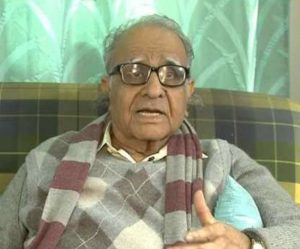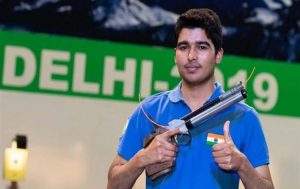 Kolkata Police has started the 3rd edition of ‘Sukanya‘ project. The project aims to provide self-defence training to girls studying in schools and colleges in the city. The third batch of ‘Sukanya’ started at 100 city-based schools and colleges situated in Kolkata Police jurisdiction. Sukanya project is an initiative of the Kolkata Police’s Community Policing Wing to provide self-defence training to girl students of city-based schools, colleges and universities. The initiative is funded by Women and Child Development and Social Welfare Department of the state government. Kolkata Police has started the 3rd edition of ‘Sukanya‘ project. The project aims to provide self-defence training to girls studying in schools and colleges in the city. The third batch of ‘Sukanya’ started at 100 city-based schools and colleges situated in Kolkata Police jurisdiction. Sukanya project is an initiative of the Kolkata Police’s Community Policing Wing to provide self-defence training to girl students of city-based schools, colleges and universities. The initiative is funded by Women and Child Development and Social Welfare Department of the state government. |
| Source: The News On AIR |
 Former Governor of Karnataka T N Chaturvedi passed away. He was the 14th Governor of Karnataka from 2002–2007. He also served as of Comptroller and Auditor General of India from 1984 to 1989. He was awarded the Padma Vibhushan in 1991. Former Governor of Karnataka T N Chaturvedi passed away. He was the 14th Governor of Karnataka from 2002–2007. He also served as of Comptroller and Auditor General of India from 1984 to 1989. He was awarded the Padma Vibhushan in 1991. |
| Source: The News on AIR |
 An international team of astronomers funded in part by NASA has found the farthest galaxy group identified as “EGS77“. EGS77, the trio of galaxies dates to a time when the universe was only 680 million years old, or less than 5% of its current age of 13.8 billion years. EGS77 is the farthest group of galaxies to have ever been sighted. EGS77 was discovered as part of the Cosmic Deep And Wide Narrowband (Cosmic DAWN) survey. The team of astronomers was led by an Indian-origin Goa-born scientist, Vithal Tilvi. Vithal Tilvi is currently a visiting researcher at the School of Earth & Space Exploration, at the Arizona State University, US. An international team of astronomers funded in part by NASA has found the farthest galaxy group identified as “EGS77“. EGS77, the trio of galaxies dates to a time when the universe was only 680 million years old, or less than 5% of its current age of 13.8 billion years. EGS77 is the farthest group of galaxies to have ever been sighted. EGS77 was discovered as part of the Cosmic Deep And Wide Narrowband (Cosmic DAWN) survey. The team of astronomers was led by an Indian-origin Goa-born scientist, Vithal Tilvi. Vithal Tilvi is currently a visiting researcher at the School of Earth & Space Exploration, at the Arizona State University, US. |
| Source: The Economic Times |
 On January 6, 2020, the fifth Asia Pacific Drosophila Research Conference was held at Pune. It was organized by the Indian Institute of Science Education and Research. The conference is held twice a year. On January 6, 2020, the fifth Asia Pacific Drosophila Research Conference was held at Pune. It was organized by the Indian Institute of Science Education and Research. The conference is held twice a year. |
|
|
|
 The Government of India has released new performance energy standards for the performance of air conditioners after consulting Bureau of Energy Efficiency (BEE). The BEE operating under Ministry of Power develop strategies and policies with primary objective of reduction in energy usage. According to BEE, the total air conditioner capacity of India is 80 million tonnes of refrigeration. It is estimated that this will increase to 250 million by 2030. The Government of India has released new performance energy standards for the performance of air conditioners after consulting Bureau of Energy Efficiency (BEE). The BEE operating under Ministry of Power develop strategies and policies with primary objective of reduction in energy usage. According to BEE, the total air conditioner capacity of India is 80 million tonnes of refrigeration. It is estimated that this will increase to 250 million by 2030. |
|
|
|
 On January 5, 2020, Unnat Jyoti by Affordable LEDs for All (UJALA) and LED Street Lighting National Programme (SLNP) marked their fifth anniversary. The schemes were implemented by Energy Efficiency Services Limited (EESL). EESL is a joint venture of PSU operating under Ministry of Power. On January 5, 2020, Unnat Jyoti by Affordable LEDs for All (UJALA) and LED Street Lighting National Programme (SLNP) marked their fifth anniversary. The schemes were implemented by Energy Efficiency Services Limited (EESL). EESL is a joint venture of PSU operating under Ministry of Power. |
|
|
|
|
 The Indian Army will sign MoU with Russia to procure AK-203 assault rifles. According to the deal, around 1 lakh rifles are to be received directly from Russia and the rest will be manufactured in India The Indian Army will sign MoU with Russia to procure AK-203 assault rifles. According to the deal, around 1 lakh rifles are to be received directly from Russia and the rest will be manufactured in India |
|
|
 The Marine Ecosystems-Challenges and Opportunities (MECOS), the third international symposium is to be held in Kochi. The symposium is conducted by the Marine Biological association of India between January 7, 2020 and January 10, 2020. The Marine Ecosystems-Challenges and Opportunities (MECOS), the third international symposium is to be held in Kochi. The symposium is conducted by the Marine Biological association of India between January 7, 2020 and January 10, 2020. |
|
|
 Krishnamachari Srikkanth & Anjum Chopra will be conferred with the CK Nayudu Lifetime Achievement Award. Krishnamachari Srikkanth will be the recipient of 2019’s prestigious CK Nayudu Lifetime Award. Former India women’s captain Anjum Chopra is the co-recipient of the lifetime achievement award for the year 2019. Srikkanth and Anjum will be conferred with the Lifetime Achievement award by Board of Control for Cricket in India (BCCI) for their contributions to Indian cricket. Krishnamachari Srikkanth & Anjum Chopra will be conferred with the CK Nayudu Lifetime Achievement Award. Krishnamachari Srikkanth will be the recipient of 2019’s prestigious CK Nayudu Lifetime Award. Former India women’s captain Anjum Chopra is the co-recipient of the lifetime achievement award for the year 2019. Srikkanth and Anjum will be conferred with the Lifetime Achievement award by Board of Control for Cricket in India (BCCI) for their contributions to Indian cricket. |
| Source: The Hindu |
 Indian shooter Saurabh Chaudhary has won the men’s 10 metres air pistol gold medal at the 63rd National Shooting Championship in Bhopal, Madhya Pradesh. Second-placed Sarabjot Singh of Haryana, while world number two Abhishek Verma settled for bronze in a high-quality final. Abhishek and Sarabjot together won the team gold for Haryana. Sarabjot also won the junior men’s gold. Indian shooter Saurabh Chaudhary has won the men’s 10 metres air pistol gold medal at the 63rd National Shooting Championship in Bhopal, Madhya Pradesh. Second-placed Sarabjot Singh of Haryana, while world number two Abhishek Verma settled for bronze in a high-quality final. Abhishek and Sarabjot together won the team gold for Haryana. Sarabjot also won the junior men’s gold. |
| Source: The News on AIR |
You need to login to perform this action.
You will be redirected in
3 sec
